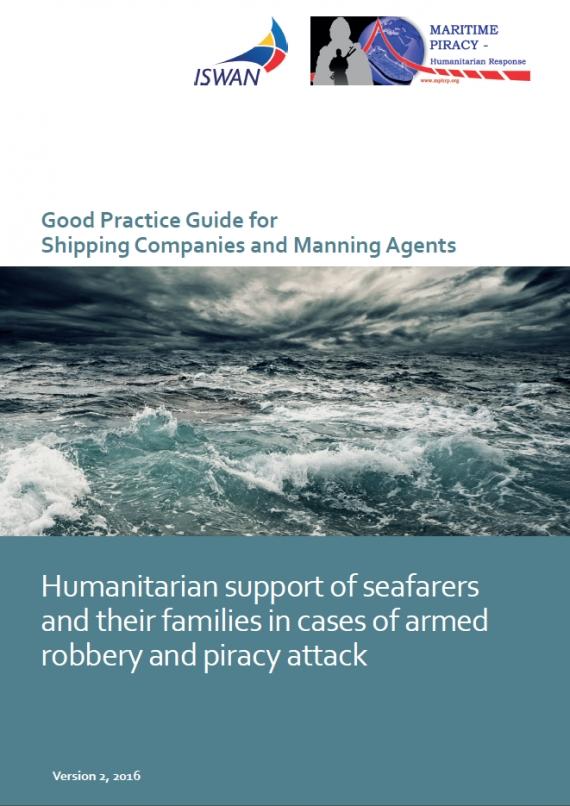ISWAN Press Release: For Immediate Release
7 June 2016

Seafarers continue to be the targets of pirates and armed robbers, with around 100 held captive ashore by various groups in different parts of the world at the moment. The training of seafarers, best management practice and hardening of ships has formed part of the response, but companies still need to be well prepared for seafarers being attacked or taken captive.
The ISWAN Maritime Piracy Humanitarian Response Programme has issued an updated “Good Practice Guide for Shipping Companies and Manning Agents – humanitarian support of seafarers and their families in cases of armed robbery and piracy attack.” The guide has been updated with the help of the International Chamber of Shipping, the International Maritime Bureau, the International Maritime Employers’ Council and the Oil Companies International Marine Forum.
The guide covers good practice in the support of seafarers and their families before, during and after an incident. It includes recommendations on planning, and also contains templates of leaflets, nominee forms and sample communications with families, as well as other information of more general use. It is designed to supplement the existing processes of companies, and comes with the benefit of the experience of dealing with over 200 seafarers and their families who have been held captive by pirates. It is available free to download and reproduce.
Andy Winbow, Chair of the MPHRP Committee of ISWAN, commended the guide to companies. “Piracy and armed robbery remains a real concern for seafarers and their families and the ISWAN Good practice guide fulfils a very real need. All the industry partners and related organizations that have contributed to the guide have the best interests of seafarers at heart and ISWAN looks forward to working with them to assist seafarers and their families affected by incidents of piracy and armed robbery when they occur.”
Cyrus Mody of the IMB, who helped with the revision of the guide, said: “within the shipping industry many companies have well prepared and well-rehearsed SOPs to deal with all types of maritime crisis. This guide can positively supplement elements of these SOPs so that they comprehensively address the needs of seafarers.”
Roger Harris, Executive Director of ISWAN, concluded: “the guide provides a welcome addition to the services ISWAN can offer to seafarers and their families. Access to our 24 hour helpline gives seafarers and companies easy referral to agencies on the ground who can help individual seafarers and their families affected by piracy and armed robbery. We will continue with appropriate training and tools to increase the resilience of seafarers and support affected families.”
The guide can be downloaded from here or from the ISWAN website at
http://bit.ly/mphrpguide
For further information contact :
Tom Holmer – Programme Manager, Maritime Piracy Humanitarian Response Programme, part of ISWAN, the International Seafarers’ Welfare and Assistance Network.
tomholmer@mphrp.org
